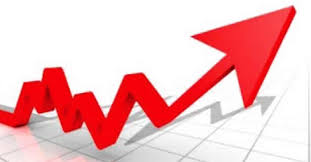This is a 0.22 percentage point increase from the 11.02% recorded in August.
All the indices that measure inflation recorded an increase.
“The urban inflation rate increased by 11.78 percent (year-on-year) in September 2019 from 11.48 percent recorded in August 2019,” the CPI report released by the National Bureau of Statistics (NBS) read.
“The rural inflation rate increased by 10.77 percent in September 2019 from 10.61 percent in August 2019.”
Food inflation increased by 0.34 percentage points to hit 13.51%.
The food inflation number was reported to have been caused by “increases in prices of bread and cereals, oils and fats, meat, potatoes, yam and other tubers, fish and vegetables”.
On a year-on-year basis, the highest food inflation was recorded in Niger (16.65%), Nasarawa (16.57%) and Abuja (16.31%), while the slowest rise was recorded in Akwa Ibom (11.72%), Benue (11.22%) and Bayelsa (9.95%) recorded the slowest
rise.
“On month on month basis however, September 2019 food inflation was highest in Kogi (4.90%), Delta (3.82%) and Kwara (3.70%), while Kano (0.18%) and Zamfara (0.17%) recorded the slowest rise with River recording price deflation or negative inflation (general decrease in the general price level of food or a negative food inflation rate).”
An analysis of the data released by the NBS showed that food and urban inflation recorded the highest increase (in percentage points).
Nigeria has closed its borders with neighbouring countries since August with President Muhammadu Buhari saying the action was taken to curb smuggling.
Since the border closure, the price of rice, imported chicken and turkey has recorded an increase.
On Monday, Hameed Ali, the comptroller general of the Nigeria Customs Service, announced that import and export of goods through the land borders has been suspended.









